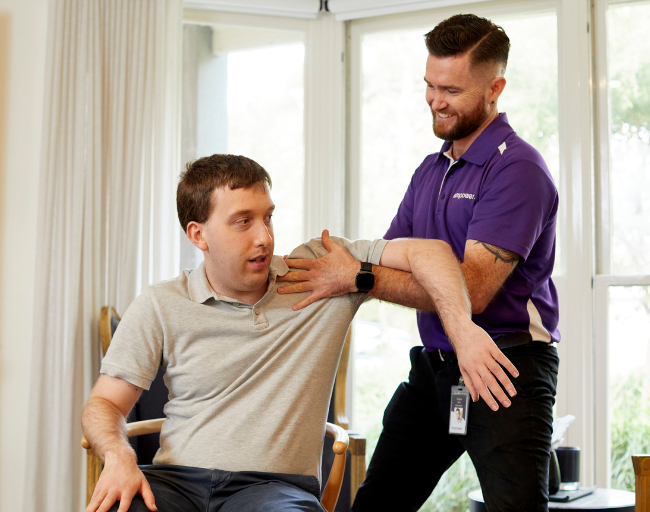Humans swallow at least 500 times a day. Like breathing, swallowing is a reflex that we don’t think about unless there is a problem with the process, this difficulty swallowing is known as dysphagia.
When challenges with swallowing do arise, they can cause distress and pose a significant risk to the health of the person who suddenly must consider every mouthful of food, sip of water or reflexive swallow.
What causes swallowing difficulties?
The most common causes of swallowing difficulties in adults arise from neurological conditions like stroke and Parkinson’s Disease. In children, developmental and congenital problems can affect swallowing and interfere with feeding and growth.
What are the warning signs for dysphagia?
Most of us will experience an episode of choking occasionally, luckily this is usually self-managed with a good amount of strong coughing and occasionally some help by those around us.
The real cause for concern is when these episodes occur frequently and do not resolve.
Other signs that swallowing is a problem are:
• an inability to swallow certain foods or liquids
• bringing food back up, sometimes through the nose
• a sensation that food is stuck in your throat or chest
• persistent drooling of saliva
• being unable to chew food properly
• a gurgly, wet-sounding voice when eating or drinking
Over time, dysphagia can also cause symptoms such as weight loss and repeated chest infections.
How do Speech Pathologists help people with swallowing difficulties?
Empower Speech Pathologists offer comprehensive swallowing services for people who are struggling with dysphagia and can help clients and their caregivers manage eating and drinking with less stress and more enjoyment by providing practical guidelines, recommendations, and therapy.
Empower’s Swallowing services include
• Full Swallowing assessments.
• Advice on posture and positioning for meals.
• Texture modification recommendations.
• Saliva Management
• Oral Motor Therapy.
• Compensatory strategies for safe swallowing.
• Mealtime Management Planning.
• Telehealth services and support.
• Education and training for clients, parents, carers, families, and support workers.
Our services can be accessed through a range of funding options and tailored to meet the needs of clients, participants and their caregivers.
Simply click on the image below for our referral form.






